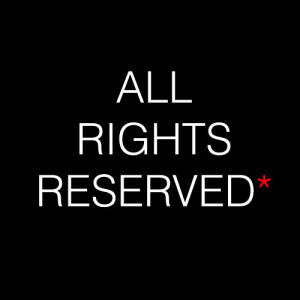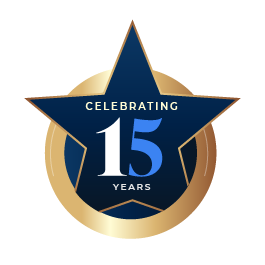[New – see also the empirical observation our Founder Gav Ward helped to coin re Lemley’s Law here.]
Ask yourself this question: if you find a photograph on the internet and want to reproduce it in your own creation what would you be required to do by law? It doesn’t have to be a photograph but any creative medium: a video, a piece of music or an excerpt text. A starting point would be tracking down the owner. However how would you track down the owner? When I say owner I do not necessarily mean the original creator but the person (or corporation) that holds the copyright. Once you’ve tracked down the copyright holder what do you need to do? Perhaps you could ask for permission for the use. Yet where and who exactly should you go to in order to get permission? If they say no what other options do you have? Possibly you could attempt to procure a license for the secondary use of the work? Yet how do you go about getting a license? What is a reasonable price for a license? Should you consult a lawyer first? These are just some of the questions faced by millions secondary users in the UK on a daily basis.
A new Copyright Hub for the UK
These questions could be said to arise from the lack of access to information. Currently a vast quantity of rights holders information is blocked, doesn’t exist or is quasi-blocked by the laborious process of investigation. Further there is a general lack of understanding about the key concepts of copyright law. However, hope is on the horizon. The influential Hargreaves Review on IP and growth, published in 2011, recommended the establishment of a ‘copyright exchange’ in order to facilitate a mechanism for users and creators to ascertain information on copyright holders. This exchange was to be a portal accessible online. Last month (July 2013) the UK saw the introduction of such a scheme in the form of the Copyright Hub. The Hub is under the stewardship of the Copyright Hub Launch Group (CHLG). The CHLG is made up of a number of senior persons from various different creative industries with Richard Hooper CBE (co-author of ‘Copyright works: Streamlining copyright licensing for the digital age’) chairing the group.
A Centralised Web Portal
In its current form it is a web portal of advice, assistance and guidance for both rights holders and users alike. However the aspiration is to make it a centralised information hub that will be directly connected to a network of rights holders. The purpose of this network of information is to deliver a seamless gateway for the general public to ascertain who owns a copyright. The over-arching theme is that if a user can easily access this information they are more likely to seek permission and/or obtain a license for the use. The Hub is specifically aimed at the “untapped high volume of low monetary value transactions requiring low transaction costs.” This includes both businesses and consumers alike. Yet, with regard to businesses it is oriented towards smaller entities. The anticipated average Hub user is more likely to be a shop or cafe looking to play some background music as opposed to a multi-national corporation seeking to procure a colossal IP contract.
The current website ushers in the first of three prospective stages. The first, pilot, stage provides a platform for information. The three foundational features focus on: 1) getting information (making copyright understandable), 2) getting permission and 3) getting protection. It centralises information on who and where users need to contact in order to gain information. It presents a series of options offering a virtual flow-chart of easy to follow broad questions. The Hub offers an online signposting system to help you arrive at the right answer. The answers link to the websites of the initial suppliers (including BBC, Getty and PRS for Music among others) directing a user where to contact with regard to a query.
The pilot website goes someway to informing the general public on copyright matters. Apart from specific information and links on how to get permission or protection the website also contains general copyright information. The CHLG is well aware that copyright law can be extremely complex and the over-arching theme is public edification. However the Hub has been designed more as a first port of call as opposed to the final destination. The current functionality remains basic. For example, a prospective creator seeking an explanation of how the fair dealing defence operates in practice may be left wanting. Nevertheless the basics are there and the features are more oriented towards getting permission or protection.
A Three Stage Process
As mentioned the Hub is currently in the first of three stages. If the pilot is successful the plan is to get more suppliers and rights holders involved. The second stage, planned for 2014, will see the Hub evolve from an information portal to an intelligent router. It would enable a budding user to send a query to a database operated by one of the suppliers to ascertain information about who holds a copyright. Instead of simply following signposts, specific queries can be made on the site that will ink into suppliers database returning results. Phase three, which would come into force in 2015, will build on the intelligent router. It will introduce a mechanism that allows independent creators to register their works with one of the supplier’s databases. This would offer independent creators a central location to register their works on a database. These registrations can then be searched via the hub. Thus, the hub will offer a unique search engine function for users to search and find out who owns a particular copyright.
Roadblocks Facing the Hub
It is important to remember that this is a work in progress and there is no telling whether this consultation pilot will be successful. Two major roadblocks stand in the way of success: 1) future funding and 2) user and creator interaction. Firstly, the current scheme was set up with a government grant. However, to achieve a sustainable programme a significant amount of further investment will be required. A current proposal is to charge registration fees to rights holders. It is unclear how willing small businesses and individuals would be to paying these fees. Secondly, the success of the programme is reliant on as many creators registering their works as possible. The entire system loses credibility if a potential user is presented an incomplete picture of copyrighted works. Thus the Copyright Hub is dependent on users interacting with the Hub and actively registering their works.
Advancing UK Copyright Law
It can of course be myopic and naïve to make predictions about the success of such a programme while it is still in its nascent stages. Importantly the core ideas are in the right place. It is no secret that there is a significant culture in the UK of taking and reproducing works without paying the slightest regard to copyright laws. This culture needs to change and one way of doing that is by educating and enlightening. The other is by making it easier for users and creators to go about getting protection or permission. The Hub has real potential to appreciably increase education and improve access. A perfectly operational Copyright Hub may be some way off in the face of funding and the voluntary nature of the register. Yet, if the CHLG could achieve a fully functional stage 3 the state of copyright law in the UK would be meaningfully advanced for both users and creators.
You may also want to check out Who is Hosting This, a free tool that allows people to identify who hosts a website or particular piece of content. One of the most common uses of the tool is to identify and contact perpetrators of copyright infringement. See their guides to help students understand copyright laws as well as plagiarism:
- http://whoishostingthis.com/re
sources/student-copyright/ - http://www.whoishostingthis.co
m/resources/student-copyright/ #page-2
Further useful links to useful copyright law information? Please do get in touch to suggest them here.
Image courtesy of no3rdw on Flickr

